Using headphones when podcasting is crucial for achieving high-quality, consistent audio. Whether you're a newbie or seasoned podcaster, the right pai
Why Do You Need The Best Headphones
If you don’t have headphones when having remote podcast guests speak, the audio from your speakers will interfere with your microphone and create a terrible feedback loop. |
Hear your own voice
It also gives you more control since you can adjust the levels. As you speak into the microphone, you receive the sound through the headphones, allowing you to quickly assess and modify your delivery. And this can involve altering your delivery regarding the volume, pitch, or other elements. |
Isolate sound
Audio bleed occurs when sound is unintentionally picked up by a microphone. In podcasting, it happens when two or more people are recording without using headphones, so the audio from one speaker is picked up by another’s microphone. It sounds like multiple people are speaking at the same time. Echo results when the microphone captures sound from the speakers, resulting in feedback, delays, and difficulty for guests to hear the host. Investing in a quality headphones while recording podcasts can help minimize audio bleed, or eliminate the issue completely. |
Improved mic technique
For guests, headphones are even more critical as they can provide direction on correctly positioning themselves. How close they should be to the mic and adjust their volume level accordingly. |
Help you notice & reduce ambient noise
|
Make editing your podcast easier
|
When Should You Get A Podcast Headset?
If you’re just starting out with podcasting and need to keep costs low, buying a headset is a smart move. It’s cheaper than purchasing separate top-quality headphones and microphones for yourself and your guests. Plus, if you plan on live-streaming your podcast but don’t have the resources for multiple camera angles, a headset can help reduce clutter in the studio without blocking your guests’ faces. A headset is also versatile – you can use it for other activities like gaming streams or chatting with friends on Skype or Discord.
Our Top Pic For The Best Headphones For Any Podcasting Needs
|
|
|
|
|
|
|
|
|
|
What To Look For In Podcast Headphones
Different people may have different opinions, but ultimately it is up to you to decide what works best for you.
Open-Back Vs. Closed-Back Headphones
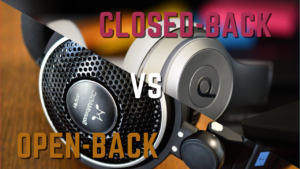
Closed-back headphones feature ear cups with a solid exterior and are ideal for recording due to their superior noise isolation capabilities. This ensures a higher quality of the sound recording.
Open-Back Headphones are ideal for editing purposes as they emphasize sound quality. Featuring an open-back design, the rear of the ear cups are usually covered with a grille or mesh. This design allows for improved comfort as heat is more easily dissipated.
Comfort
For extended podcast recordings featuring multiple speakers, comfortable headphones are a must. Consider investing in models with padded cushions and large ear pads for greater comfort during long sessions. Additionally, lightweight headphones are preferable; heavier models can be uncomfortable if worn for extended periods.
Frequency Range
Frequency response is an essential characteristic of any audio device, indicating the range of frequencies it can process accurately. Generally, the desired range is between 20 and 20,000 Hz, and having a flat frequency response is ideal. It ensures that the audio output is faithful to the original source without additional enhancements.
Sound Sensitivity
The ideal headphone sensitivity level for podcasting is between 80 and 125 dB sound pressure level (SPL). This range ensures optimal conversion of electrical signals into acoustic sound and optimal audio clarity.
Portability
For those looking to travel with their headphones or store them in a compact space, consider models that can be folded or come with a carrying case. This can help to ensure their protection against potential damage.
Wireless Vs. Wired
When deciding how to connect headphones to a laptop or other audio device, it is vital to consider the convenience of a wireless model versus the improved sound quality of a wired version.
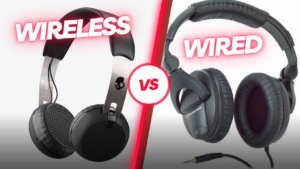
Wireless headphones use Bluetooth or other wireless technology to transmit audio signals, affording users greater freedom of movement without the need for cables. However, this convenience can come at the cost of potential signal interference or reduced sound quality.
In comparison, wired headphones offer greater durability, longer life, and better sound quality for the price.
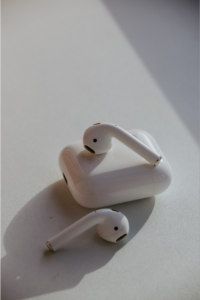 Can You Record A Podcast Using AirPods?
Can You Record A Podcast Using AirPods?
Although earbuds are a viable option in a pinch, they are not ideal for podcasting. Their limited size makes it difficult to accurately isolate frequencies, and sound can leak through and be picked up by a microphone. Furthermore, they can be prone to latency and lags, as well as a reliance on battery life. Investing in a pair of over-ear headphones is the best option for the best control and sound quality.
AirPods, while convenient, may not be the most cost-effective option for audio editing.
Conclusion: Choose The Best Headphones For Your Podcasting Needs
Having a good set of podcasting headphones is an essential part of any podcasting setup. Whether you are a seasoned podcasting veteran or just starting out, a quality set of headphones can help elevate your production to the next level. With such a competitive market, it can be difficult to choose the best set of headphones for your needs. Our recommendations above are designed to help you find the best podcasting headphones to suit your budget and needs.
If you are already utilizing any headphones for podcast recording and believe they should be included in our list, please let us know in the comments section below. We would appreciate your input and be happy to answer any questions you may have.
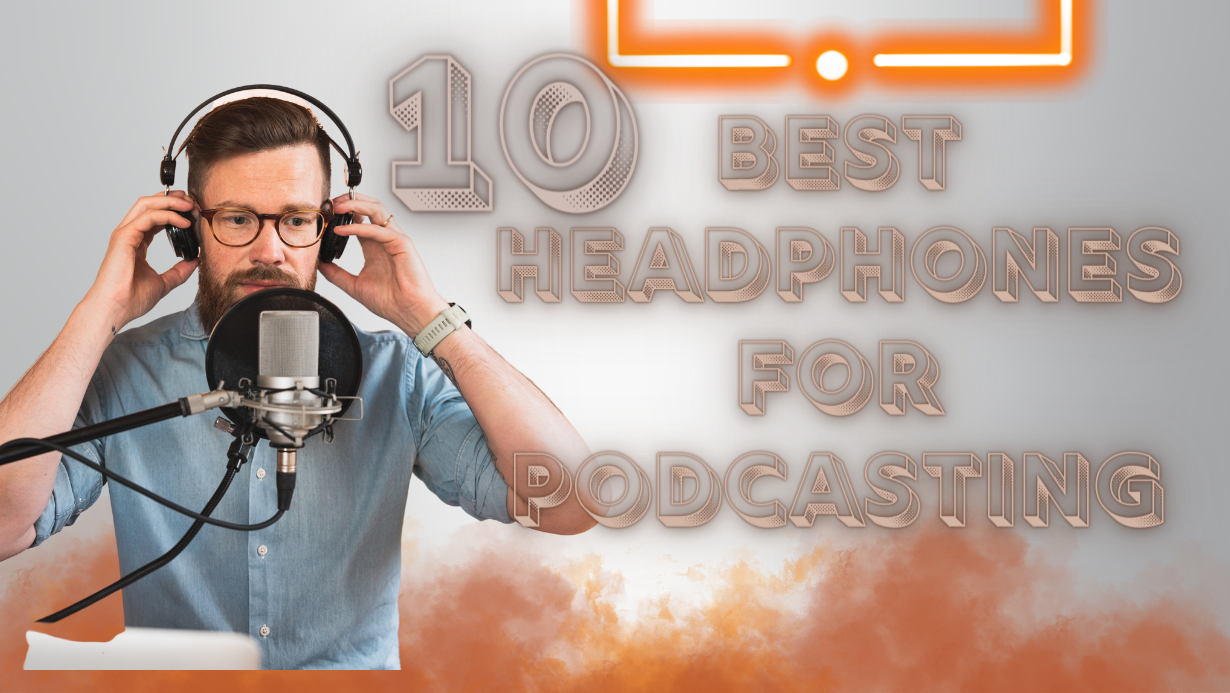

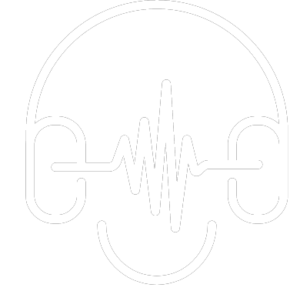 If you are looking to record a podcast, it is important to hear how your voice sounds to others. With headphones, you can listen to your audio as it is heard by your audience, which is different from how your own voice sounds to you.
If you are looking to record a podcast, it is important to hear how your voice sounds to others. With headphones, you can listen to your audio as it is heard by your audience, which is different from how your own voice sounds to you.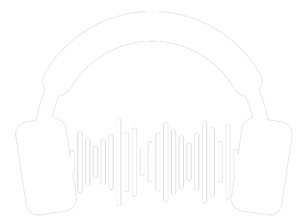 When recording audio, capture only the intended content and avoid capturing any unintended sounds.
When recording audio, capture only the intended content and avoid capturing any unintended sounds.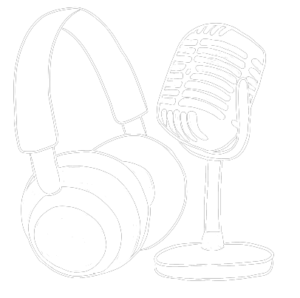 Headphones are essential for improving your mic technique when recording a podcast. With headphones, you can immediately hear the audio fluctuations and determine the optimal distance and volume level for the microphone. This real-time feedback allows you to adjust your mic technique quickly and become more experienced.
Headphones are essential for improving your mic technique when recording a podcast. With headphones, you can immediately hear the audio fluctuations and determine the optimal distance and volume level for the microphone. This real-time feedback allows you to adjust your mic technique quickly and become more experienced.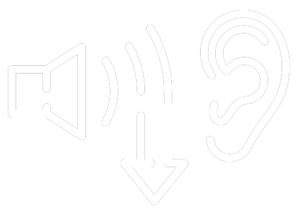 Headphones can be an excellent tool for improving your mic technique, but they can also enhance your audio quality. By picking up more frequencies than the human ear, headphones can detect background noise you wouldn’t typically hear. Thus resulting in a cleaner recording. Even in a sound-proofed studio, such noises can still be picked up from sources such as the computer fan, air conditioner, or external activity.
Headphones can be an excellent tool for improving your mic technique, but they can also enhance your audio quality. By picking up more frequencies than the human ear, headphones can detect background noise you wouldn’t typically hear. Thus resulting in a cleaner recording. Even in a sound-proofed studio, such noises can still be picked up from sources such as the computer fan, air conditioner, or external activity.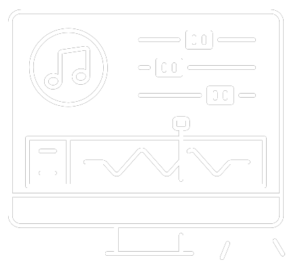 When recording audio, headphones can be paired with a mixer to help you monitor and adjust levels in real time. This will save you time in post-production as you can accurately assess the sound quality. Additionally, premium headphones are especially beneficial in preventing clipping which can lead to lost chunks of conversation in podcasts.
When recording audio, headphones can be paired with a mixer to help you monitor and adjust levels in real time. This will save you time in post-production as you can accurately assess the sound quality. Additionally, premium headphones are especially beneficial in preventing clipping which can lead to lost chunks of conversation in podcasts. Beyerdynamic DT 770 PRO
Beyerdynamic DT 770 PRO Sony MDR-7506
Sony MDR-7506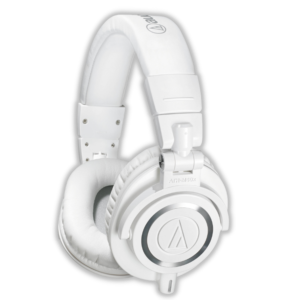 Audio-Technica ATH-M50x
Audio-Technica ATH-M50x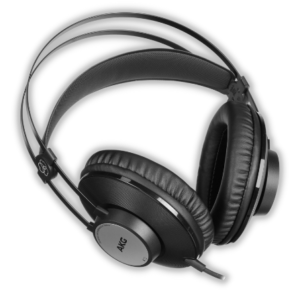 AKG K72
AKG K72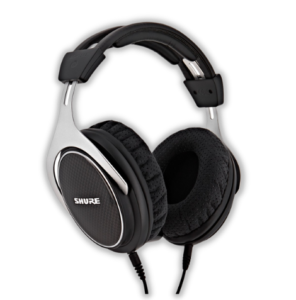 Shure SRH1540
Shure SRH1540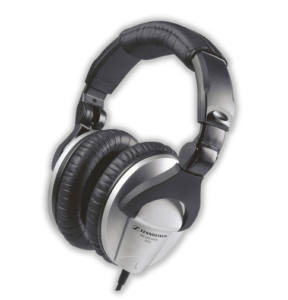 Sennheiser HD 280 Pro
Sennheiser HD 280 Pro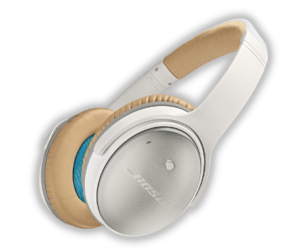 Bose QuietComfort 25
Bose QuietComfort 25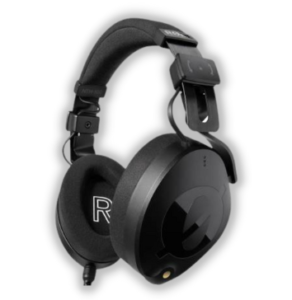 Rode NTH-100
Rode NTH-100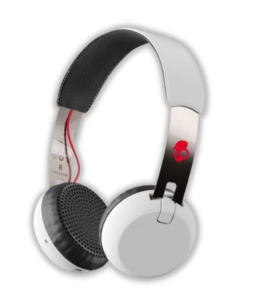 Skullcandy Grind Bluetooth Wireless
Skullcandy Grind Bluetooth Wireless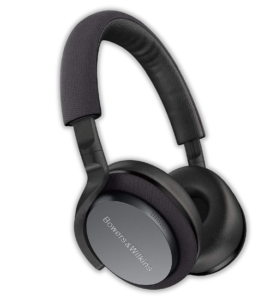 Bowers & Wilkins PX5
Bowers & Wilkins PX5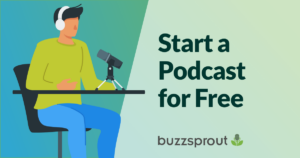
COMMENTS